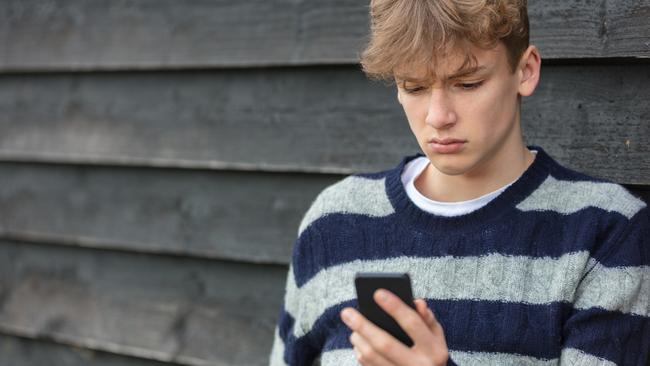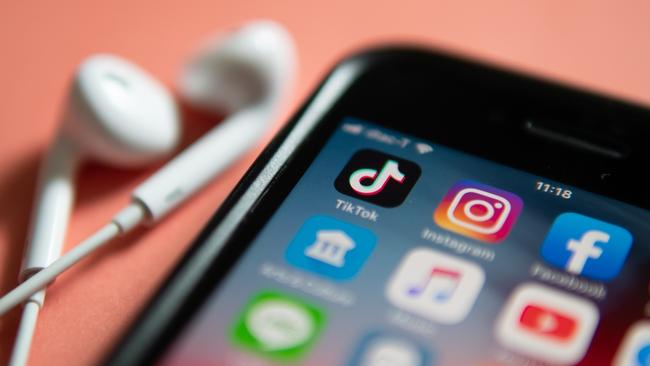School principals support ban on social media for under-16s
‘Social media cesspit’: School principals have thrown their support behind a bipartisan plan to ban social media use by children younger than 16.

School principals have hailed the federal government’s plan to ban social media for under-16s, as the opposition agreed to pass legislation by Christmas.
Australian Government Primary Principals Association president Pat Murphy said half of primary school students in years 5 and 6 were engaging regularly on social media sites.
“The use of social media sites by primary students is a constant concern for school principals and teachers, with bullying being unregulated and prevalent, leading to widespread issues in communities which flows into schools,’’ he said.
“Our students are facing unprecedented challenges, with social media influencing their self-esteem, relationships and concentration in the classroom.
“With social media’s constant comparisons and pressures, many primary school students feel overwhelmed, and they are not mature enough to deal effectively with these pressures.’’
Mr Murphy said the ban on mobile phones – introduced nationally this year – had been “transformational’’ for schools.
“Principals and teachers are watching students once again engaging socially with one another before and after school,’’ he said.

Federal Education Minister Jason Clare wrote to principals’ and parents’ associations on Tuesday to outline the Albanese government’s plan to legislate a minimum age of 16 for access to social media.
He said the government would ensure young Australians could still access social media that primarily provided health and education services. He also said the national mobile phone ban has already “made a difference’’ to children and teachers.
“There are less distractions in the classroom and more playing and social interaction in the playground,’’ Mr Clare said.
“But when school finishes, students get their phone back and they’re back in the social media cesspit. That’s why setting a minimum age limit for social media is so important.’’
In his letter to principal and parent groups, Mr Clare did not spell out fine details of how the ban would work.
“The legislation to do this will be introduced in the next sitting fortnight and put the onus on social media platforms, not parents or young people, to take reasonable steps to ensure fundamental protections are in place,’’ he wrote.
“The government will continue to work closely with stakeholders in the lead-up to the commencement of the law, with a lead time of at least 12 months following the bill’s passage to give industry, government and the eSafety Commissioner time to implement systems and processes.’’
Mr Clare said any “further refinements’’ to the legislation would be discussed with schools and parents “in the interest and betterment of children and young people … We want to work with you to help ensure we get this guidance right.’’
Peter Dutton pledged on Tuesday to “work in a bipartisan way’’ to draft the legislation co-operatively.
“If you have a child who’s online speaking to a pedophile, or being groomed by somebody online, it’s not something we would accept in the real world, so why would we tolerate an environment where that sort of … behaviour is commonplace?’’ the Opposition Leader said.
“The social media companies don’t have any interest in our children except seeing them as a profit line. We have been very serious in our call for the government to increase the age to 16 – for children under the age of 16 not to be able to access TikTok, and Insta, and other ways in which they’re communicating. It’s now been adopted by the Prime Minister and we believe it can be implemented by Christmas.’’
Communications Minister Michelle Rowland said the legislation would strike a balance between minimising harm to young people, and enabling connection and “social and digital inclusion’’.






To join the conversation, please log in. Don't have an account? Register
Join the conversation, you are commenting as Logout